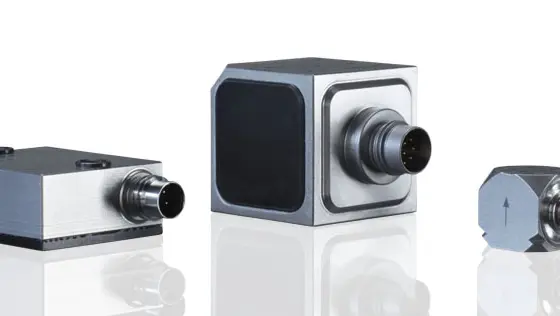An accelerometer is used to measure vibrations generated by the hammer blow on the structure that is to be examined.
Where is the impact hammer used?
An impact hammer allows the dynamic behavior of a structure to be easily examined during its development phase or in actual use. The pulse force hammer method provides extensive information on the frequency response and damping behavior of the structure being examined.
How is data acquired with the impact hammer method?
The measuring element integrated in the impact hammer has a voltage output. The instrumented hammer and the accelerometers are supplied by multi-channel couplers. Used in combination with an FFT analyzer, the transfer functions of the structure are determined from the acceleration and force signals.
What are the advantages of the impact hammer method?
Advantages of the impact hammer method:
- Quickly and easily determine the frequency response and damping behavior of a structure
- Easily measure at difficult-to-access locations
- Detect changes to the structure (for example, damages or material defects)
- Mobile use
- Little additional hardware necessary
- Time and cost savings
How to perform an integrity test with the impact hammer method
In general, the range of the excited frequencies decreases with increasing impact duration. The impact tips mounted on an impact hammer are made from various materials (steel, plastic and rubber tips of various density) and stimulate various frequency ranges. Depending on the frequency one wishes to stimulate in the structure, the selected impact tip and an extender mass (for increasing the force range) are mounted on the hammer.



